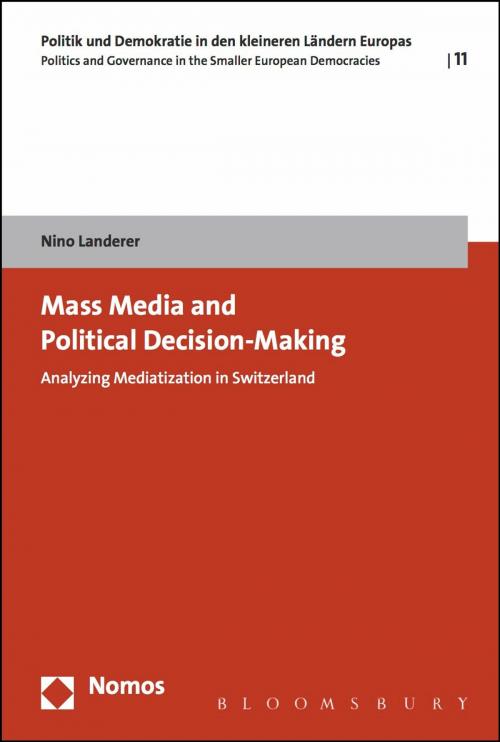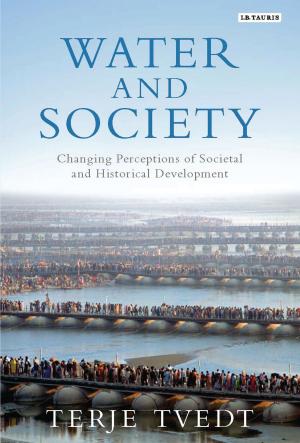Mass Media and Political Decision-Making
Nonfiction, Social & Cultural Studies, Political Science, Government, Public Policy, Social Science| Author: | Mr Nino Landerer | ISBN: | 9781474259217 |
| Publisher: | Bloomsbury Publishing | Publication: | October 20, 2016 |
| Imprint: | Nomos/Bloomsbury | Language: | English |
| Author: | Mr Nino Landerer |
| ISBN: | 9781474259217 |
| Publisher: | Bloomsbury Publishing |
| Publication: | October 20, 2016 |
| Imprint: | Nomos/Bloomsbury |
| Language: | English |
To what extent have political decision-making processes become mediatized? Based on this question, the author analyzes media coverage and parliamentary actors' (MPs) strategies and perceptions in three conflicted decision-making processes in Switzerland. Mediatization of politics refers to behavioral changes and adaptations of political actors, institutions, and processes that are related to (mass) media. According to some scholars, mediatization may lead to politics of immediacy, conflict, drama, and personalization, thereby challenging established institutions and processes in liberal democracies.
The quantitative and qualitative analyses of MPs' strategies and perceptions provide new insights into how political actors may "self-mediatize†? in the advent of globalization and polarization. Overall, the book adopts an actor-centric approach and shows that mediatization of politics is not a fate, but a strategic choice.
To what extent have political decision-making processes become mediatized? Based on this question, the author analyzes media coverage and parliamentary actors' (MPs) strategies and perceptions in three conflicted decision-making processes in Switzerland. Mediatization of politics refers to behavioral changes and adaptations of political actors, institutions, and processes that are related to (mass) media. According to some scholars, mediatization may lead to politics of immediacy, conflict, drama, and personalization, thereby challenging established institutions and processes in liberal democracies.
The quantitative and qualitative analyses of MPs' strategies and perceptions provide new insights into how political actors may "self-mediatize†? in the advent of globalization and polarization. Overall, the book adopts an actor-centric approach and shows that mediatization of politics is not a fate, but a strategic choice.















